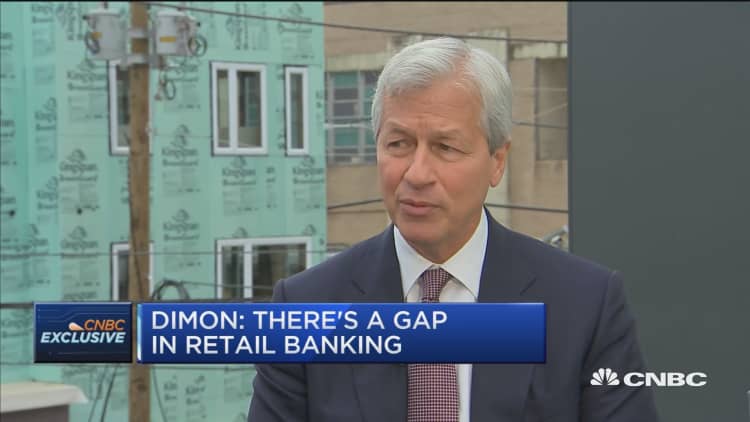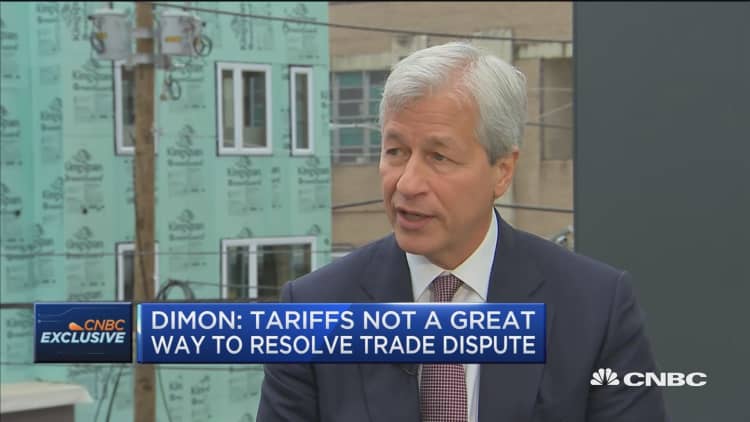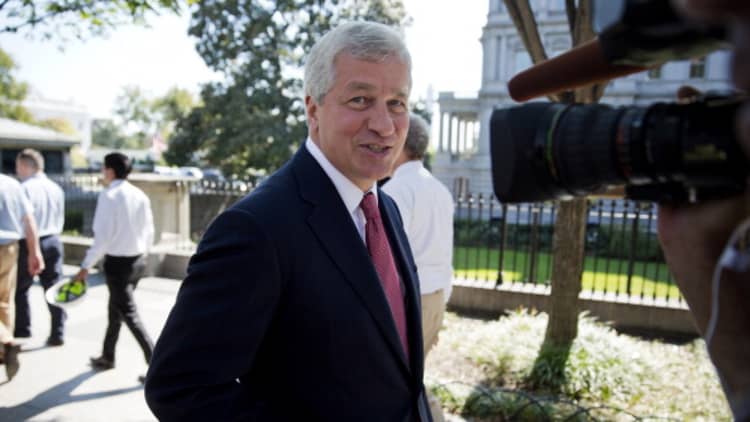
The U.S. economy is humming along with little in the way to derail its recently stronger growth trajectory, J.P. Morgan Chase Chairman and CEO Jamie Dimon told CNBC on Monday.
"In America, the economy is quite strong. It's growing at 3 percent. And it has been now for a couple of quarters," he said. "There are no great potholes. So that may very well continue."
Dimon said he can't tell whether the U.S. dispute with China over trade will be a drag on the American economy. "I worry about it. But I just don't know," he said.
In an interview with CNBC's from Philadelphia, where the bank plans to open 50 new branches, Dimon listed the reasons he's positive on the economy.
"The household is in good shape; people going back to work. FICO [credit] scores are fine. Companies are flush. Tax reform is still a benefit. We don't have the extreme leverage we had in [2008]. All the lending has been pretty good," he said.
Since President Donald Trump took office, the nation's gross domestic product has grown an average of 2.7 percent per quarter, including two seasonally weak first quarters and a 4.2 percent advance in the second quarter of 2018.
The final estimate for second-quarter GDP, scheduled to be released this week, is expected to be revised up to 4.3 percent, according to the CNBC Rapid Update. Third-quarter growth is pegged at 3.3 percent.

While positive on the economy, the banking boss acknowledged there's "always friction" in terms of global events, such as the U.S.-China trade tensions and the "fear that skirmish becomes a war."
"The president raised very, very good issues [on China]," Dimon said, but he added tariffs are "not a great way to go about it." They "could easily offset some of the benefits from regulatory reform and tax reform," he contended.
However, Dimon said: "I hope their process works. I just think it's a riskier way of going about it."
The question now is whether the president will put tariffs on the rest of Chinese imports to the U.S., which totaled $505 billion last year, according to federal data.
When announcing last week the 10 percent tariffs on another $200 billion of Chinese goods, Trump threatened such action if China retaliated, which it later did to the tune of $60 billion in levies on U.S. goods.
Those new reciprocal tariffs went into effect Monday.



